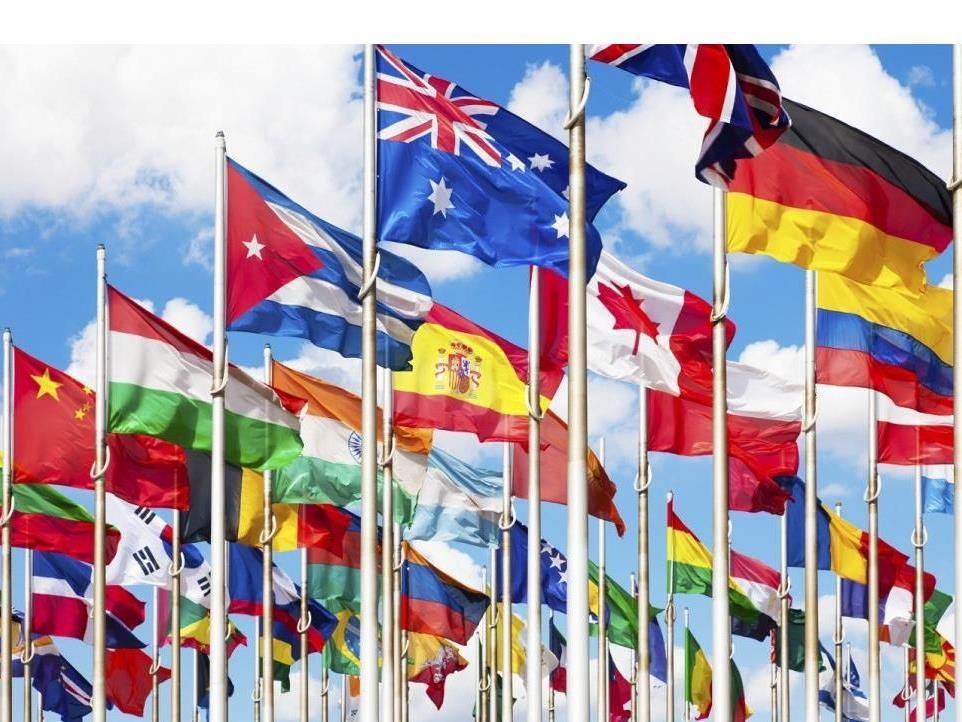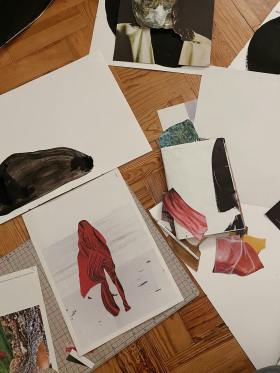United Nations Day Photo: Queensland University of Technology
The United Nations’s approach to intellectual property today tends to ignore the rights of creators as copyright owners, while emphasising vague notions of ‘user rights’.
Typical of this is a forthcoming UN ‘Special Rapporteur’ investigation “… to address the impact of intellectual property regimes on the right of people to enjoy and access cultural heritage… “.
These terms of reference say nothing in support of serious creative work and its protection under copyright. They also, revealingly, use the term ‘regimes’ to describe intellectual property management, instead of ‘system’ or ‘copyright’. Why so? Is it because…
- certain technology, broadcasting and social media companies are lobbying assiduously behind the scenes to reduce or eliminate the protections represented by formal copyright law and the international treaties which support it?
- elements within the World Intellectual Property Organisation (a unit of the UN) are favouring those companies’ wishes for more and more exceptions and limitations to copyright (often presented under cover of improving user rights) and now see the interests of ‘big data’ as representing the future of copyright?
- individual copyright creators are easier to ignore than, say, powerful educational institutions and library groups undertaking giant digitisation programs that make unauthorised use of those creators’ works?
The Australian Society of Authors (ASA) upholds the UN’s International Covenant on Economic, Social and Cultural Rights (ICESCR) and the principle that everyone should have access to knowledge without discrimination. Recently and practically, for example, we have supported the Marrakesh Treaty, which will eventually allow greater international access by the visually impaired to works by Australian authors.
But the ASA says that the “enjoyment of right to science and culture”, as set out in Article 15 of the ICESCR, is also a right that must be enjoyed by artists and literary creators. Our authors’ participation in creative production, their contribution to the culture and science that is vital to human lives and to society, is critically dependent on their personal rights to own and manage and be rewarded for their intellectual property.
Below is the submission the ASA sent to the UN investigation:
The Australian Society of Authors (ASA) wishes to offer the following contribution to the Special Rapporteur’s investigation into the ‘enjoyment of right to science and culture, as enshrined in particular in article 15 of the International Covenant on Economic, Social and Cultural Rights’.
In website copy it is stated that the Special Rapporteur: ‘…intends to address the impact of intellectual property regimes on the right of people to enjoy and access cultural heritage; access by everyone without discrimination to the benefits of science and its applications, including scientific knowledge, technology, and opportunities to contribute to the scientific enterprise; the freedom indispensable for scientific research, including access of researchers to scientific information and advances, as well as collaborative work; artistic freedoms and the right of people to access, contribute to and enjoy the arts; and the rights of indigenous peoples and local communities.’
The ASA wishes to affirm the value for societies and individuals in enjoying the benefits above. However, we also wish to point out that, in human affairs, ‘access’ and ‘freedom’ are not the same thing. At the same time, the descriptor ‘intellectual property regimes’ has an unfortunate connotation of something not quite appropriate, perhaps not even legitimate.
In these matters the ASA prefers the term ‘copyright’ and the notions contained therein, over references to an intellectual property ‘regime’. We remind that copyright is one of only a few, over-arching and generally beneficial systems of ‘human rights’ law to have been devised, ratified, supported, and operative in international terms.
It is our view that, for quality work to be created in the first place, copyright must precede notions of access and freedom, or at least as these appear in the prior description. Human labour and property are facts that lie in the bones of copyright.
It takes creative individuals time and effort to investigate, research, write and prepare for dissemination or publication. Living human beings cannot produce these outcomes on air. In order for them to go on creating, their work must in the first instance be protected, its use thereafter authorised by permission and, where required and sought, payment.
Western societies have traditionally understood the difference between ‘private’ and ‘public’, and made provision – particularly through state supported libraries and similar facilities – so that education and access to knowledge and culture can proceed where resources may be limited, especially where poverty or geography may otherwise limit the social benefits of knowledge.
In national efforts to develop educated populations over the past century and more, public access was never envisioned as necessitating the elimination or reduction of the rights and interests of creators under copyright. Nor should that be the case now.
In the matter of the access to intellectual property, technology companies and internet service providers today commonly attempt to blur the distinction between otherwise critical and separate ideas of public and private.
Commercial interests occasionally propose that they serve a ‘public’ purpose in some uniquely perverse ways. Such interests assume their digital distributive reach is, in and of itself, a sufficient engine for the spread of knowledge and science – and such that intellectual property notions that valorise in any way the interests of creators can have no further place.
Technology firms and their political supporters are often heard to suggest that their services and offerings are in perfect alignment with and supportive of the advancement of science and technology and the maintenance of cultural heritage. Furthermore, that these things will be deeply imperiled unless traditional copyright restraints and practices are eliminated.
The ASA argues instead that the giant online technology firms are not automatically aligned with such advancement, but that their services and offerings have primarily corporate commercial aims. The profit motive obliges them to hold these ahead of the rights and needs of individual creators. And the same motive requires them to work to remove the producer-creator remunerative issue from the debates on intellectual property, or else reduce it as a matter of any concern.
The ASA stresses that it is a fundamental human right of creators that they be free to choose who may have unconstrained access to their copyright works, and who they wish to license to take their work to market. Numerous national copyright acts, as well as the international treaties that serve to underpin the world’s copyright system, already 3 include a range of ‘exceptions’ to provide further access to certain persons – the visually impaired, for example.
A more aggressive notion of accessor or ‘user rights’ in copyright law and practice, added to the already strained circumstances caused for creators by online piracy and the direct assaults of deleterious commercial entities which inadequately respect copyright ownership, will not in our estimation improve the quality of intellectual products available to citizens.
The ASA asserts most strongly that any review of the intellectual property system of copyright that aims to privilege ‘freer’ access at the further expense of creators, owners and licensors of copyright material, is in danger of arriving at the exact opposite of the goals proposed or sought.
A higher proportion of lesser remunerated creators and unpaid for material does not automatically mean better, more informed societies. The outcome may well be a surfeit of amateur production, and a world more crowded with works of poorer rather than greater cultural, scientific and artistic purpose and value.





